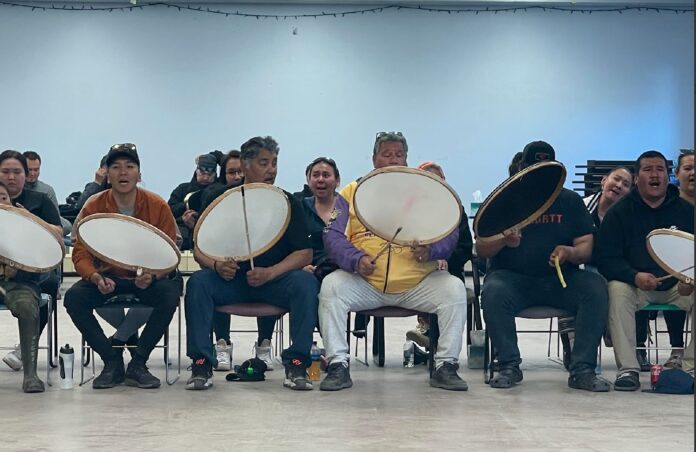SEN. DAN SULLIVAN RIPS OF COPY OF BILL
The Voice of the Arctic Iñupiat (VOICE), a coalition representing the majority of North Slope local governments, Alaska Native corporations, tribal non-profits, and federally recognized tribes, has announced its opposition to a new congressional proposal seeking to restrict activity in the Arctic National Wildlife Refuge (ANWR).
The legislation, introduced by California Democrat Rep. Jared Huffman, who was an ally of former Rep. Mary Peltola, was met with firm condemnation from North Slope Iñupiat leaders, who say the bill was developed without their input. The co-sponsor in the Senate is Sen. Ed Markey of Massachusetts, who has never visited the Arctic communities but has repeatedly signed on to legislation that impacts the people of the Arctic.
The legislation would limit development and access within ANWR’s 19-million-acre expanse, including the Coastal Plain, a region that is culturally vital to the Iñupiat people of Kaktovik, the only community that is actually located within the refuge’s boundaries.
In Washington, DC today, Sen. Dan Sullivan, while meeting with a group of Alaskans, took a copy of the bill and ripped it up to show his disapproval of the legislation that would harm Alaska Native communities.
“It is deeply concerning that, once again, legislators in Washington are attempting to advance policy to interfere with Kaktovik’s future, without any opportunity for our people to engage in the process,” said Charles Lampe, President of the Kaktovik Iñupiat Corporation.
Mayor Nathan Gordon, Jr. of the City of Kaktovik also voiced strong opposition to the bill, calling it a “misguided attempt by outsiders to regulate our homelands” without local consultation.
The North Slope Borough, which encompasses ANWR’s Coastal Plain, was established to allow local communities to benefit from and guide regional development.
The Borough’s tax base, composed almost entirely of infrastructure development, funds essential services including schools, healthcare, water and sewer systems, and wildlife management.
These services have had measurable impacts: In 1969, the average life expectancy for residents was 34 years.
Today, the lifespan of residents has more than doubled to 77 years, an increase VOICE points out is the largest of its kind in the US during that time span.
VOICE President Nagruk Harcharek criticized the lack of consultation in the bill’s development and expressed frustration with what he sees as selective support for Indigenous voices. “These individuals are beholden to so-called progressive organizations, the lot of whom only care about the Indigenous perspective when it is aligned with their policy priorities,” he said. “As stated by the 2023 Arctic Peoples Conference, ‘climate change cannot be an excuse to infringe on our distinct rights as Indigenous Peoples.’ As such, we overwhelmingly reject Representative Huffman and Senator Markey’s bill.”
The opposition signals a deepening divide between Democrats and Indigenous communities regarding land use and self-determination in the Arctic. Huffman and Peltola worked closely together during her two years on office.
